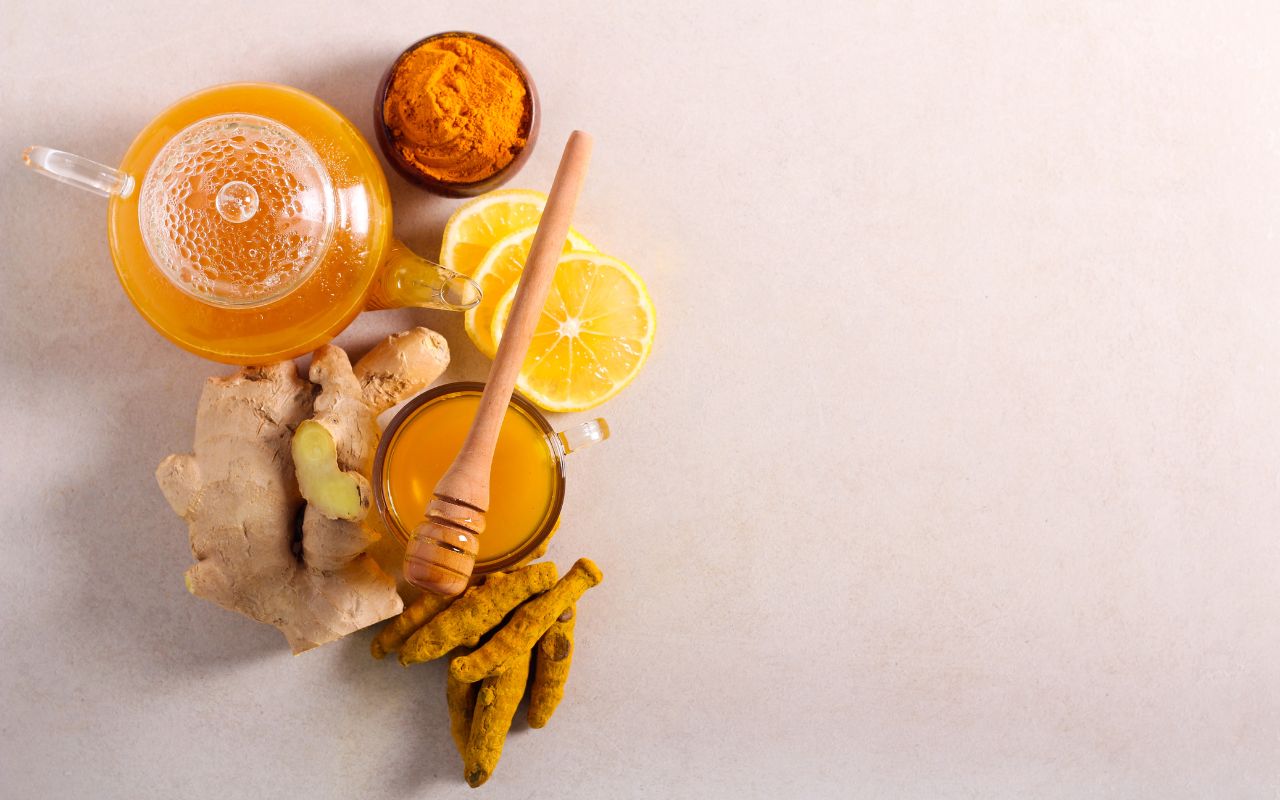In recent years, turmeric has shifted from a humble kitchen spice to a celebrated superfood, touted for its myriad health benefits. The active compound in turmeric, curcumin, has been the subject of extensive scientific research, revealing potential therapeutic properties beyond its traditional culinary use.
As a professional healthcare writer, this article aims to comprehensively explore the health benefits of turmeric, supported by credible scientific studies, with an optimistic tone that encourages integrating this golden spice into daily life.
The Origins and Composition of Turmeric
Turmeric (Curcuma longa), a member of the ginger family, has been used in Ayurvedic medicine for thousands of years. Native to Southeast Asia, turmeric root and its derivative products have been integral in traditional healing systems. The key active component of turmeric, curcumin, comprises up to 3-5% of the root's composition and is primarily responsible for its anti-inflammatory and antioxidant properties.
Anti-inflammatory Properties: A Natural Alternative
Chronic inflammation is linked to numerous health conditions, including heart disease, cancer, and Alzheimer's disease. Curcumin's potent anti-inflammatory effects have been compared to some pharmaceutical anti-inflammatory drugs, without many side effects. According to a study published in the Journal of Periodontal Research, curcumin can significantly modulate inflammatory responses, making it a potential natural treatment for arthritis and inflammatory bowel disease.
Antioxidant Benefits: Fighting Free Radicals
Oxidative stress caused by free radicals contributes to aging and various diseases. Curcumin has strong antioxidant properties that neutralize free radicals and stimulate the body’s own antioxidant enzymes. The research highlighted in Mount Sinai’s Health Library underscores curcumin’s role in enhancing the body's antioxidant capacity, thereby protecting cells and tissues from damage.
Cardiovascular Health: Protecting the Heart
Cardiovascular diseases are the leading cause of death globally. Curcumin improves the function of the endothelium and the lining of blood vessels and helps regulate blood pressure and blood clotting. A study referenced by Mount Sinai demonstrated that curcumin can significantly reduce the risk factors for heart disease, potentially lowering the incidence of heart attacks and strokes.
Turmeric in Cancer Prevention
Curcumin has been extensively researched for its potential role in cancer treatment and prevention. It can influence cancer growth, development, and spread at the molecular level. Studies have shown that curcumin can reduce angiogenesis (growth of new blood vessels in tumors), metastasis (spread of cancer), and apoptosis (programmed cell death) in cancerous cells. According to a publication in the Cancer Letters journal, curcumin has shown promising results in chemoprevention and chemotherapy for various types of cancer, including colorectal, breast, prostate, and pancreatic cancers.
Neuroprotective Effects: Shielding the Brain
Curcumin’s potential in supporting brain health is one of the most exciting research areas. It crosses the blood-brain barrier and has been shown to reduce markers of inflammation and oxidative stress in the brain. This is particularly relevant for neurodegenerative diseases like Alzheimer’s. An insightful review in the Journal of Clinical Immunology highlighted curcumin’s ability to clear amyloid plaques, which are linked to Alzheimer’s disease, thus enhancing cognitive function and potentially slowing the progression of neurodegenerative disorders.
Curcumin and Joint Health
Osteoarthritis and rheumatoid arthritis are common joint disorders characterized by inflammation and degeneration of the joints. Curcumin supplements are as effective as nonsteroidal anti-inflammatory drugs (NSAIDs) in alleviating arthritis symptoms without adverse side effects. Clinical trials, such as those documented in the Journal of Agricultural and Food Chemistry, have significantly improved pain, physical function, and quality of life for individuals with arthritis who took curcumin supplements.
Digestive Health: Soothing the Gut
Turmeric has long been used to treat digestive disorders, and modern research supports its efficacy. Curcumin enhances the production of bile, which aids in digestion and reduces symptoms of bloating and gas. It’s also beneficial for inflammatory digestive tract conditions, such as inflammatory bowel disease (IBD). A clinical trial conducted in Japan demonstrated curcumin’s effectiveness in maintaining remission in patients with ulcerative colitis.
Skin Health: A Natural Glow
The anti-inflammatory, antimicrobial, and antioxidant properties of turmeric make it an excellent option for skin health. Curcumin can help manage chronic skin conditions like eczema, psoriasis, and acne. Topical applications of turmeric can reduce redness, soothe skin irritation, and enhance skin healing. A systematic review in the British Journal of Dermatology affirmed that turmeric curcumin is a promising agent in promoting wound healing and improving skin conditions.
Supporting Mental Health
Emerging research suggests that curcumin may have antidepressant effects. Chronic inflammation and oxidative stress are known contributors to depression, and curcumin’s anti-inflammatory and antioxidant properties can help mitigate these effects. A clinical study found that curcumin supplementation significantly enhanced the efficacy of antidepressants in patients with major depressive disorder.
Enhancing Metabolism and Weight Management
Curcumin has been studied for its potential to enhance metabolic rate and support weight management. It can improve insulin sensitivity, regulate lipid metabolism, and reduce fat accumulation by inhibiting certain inflammatory markers. Turmeric's effect on metabolism was demonstrated in a meta-analysis, which found that curcumin supplementation was associated with significant reductions in body mass index (BMI) and waist circumference among overweight subjects.
Safety and Dosage Considerations
While turmeric and curcumin supplements are generally considered safe, they must be used appropriately to avoid potential side effects. High doses may cause gastrointestinal discomfort, and curcumin can interact with certain medications, such as blood thinners and diabetes medications. It's always advisable to consult with a healthcare professional before beginning any new supplement regimen. According to Drugs.com, curcumin supplements should be used with caution, especially for individuals with preexisting health conditions or those taking medications.
Practical Ways to Incorporate Turmeric into Your Diet
Integrating turmeric into your daily diet is simple and can be delicious. Here are a few practical tips:
- Golden Milk: A warm, comforting drink made with turmeric, milk, and a pinch of black pepper, which enhances curcumin absorption.
- Smoothies: Add a teaspoon of turmeric powder to your morning smoothie for a nutrient boost.
- Salad Dressings: Mix turmeric powder into vinaigrettes and dressings.
- Curries and Soups: Turmeric is a staple in many curry recipes, adding a rich, earthy flavor to soups and stews.
- Turmeric Tea: Brew turmeric tea by boiling turmeric root or powder with water and adding honey and lemon for flavor.
The Future of Turmeric Research
As science continues to explore the depths of turmeric’s therapeutic potential, the future looks promising. Continued research could unlock new applications and more precise recommendations for its use. With its broad spectrum of biological activities, turmeric promises to become a cornerstone in the prevention and management of many chronic diseases.
In conclusion, the health benefits of turmeric are extensive and well-supported by scientific research. From reducing inflammation and oxidative stress to supporting heart and brain health, turmeric is a potent natural remedy. By incorporating this golden spice into your daily routine, you can harness its powerful benefits and support overall well-being. As always, please consult with a healthcare professional to ensure it is appropriate for your health needs.








